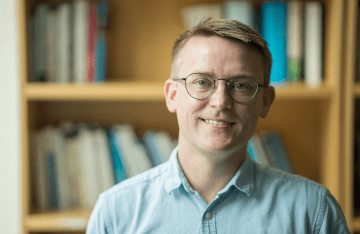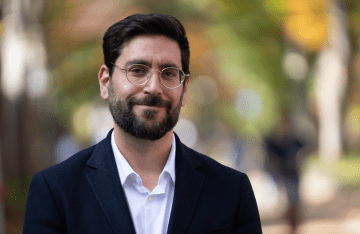Health Communication Scholar Andy Tan Receives Tenure and Looks Ahead
In reaching this milestone, Andy Tan, Ph.D., M.P.H., M.B.A., M.B.B.S., takes stock of his years at Annenberg and discusses his ongoing work.
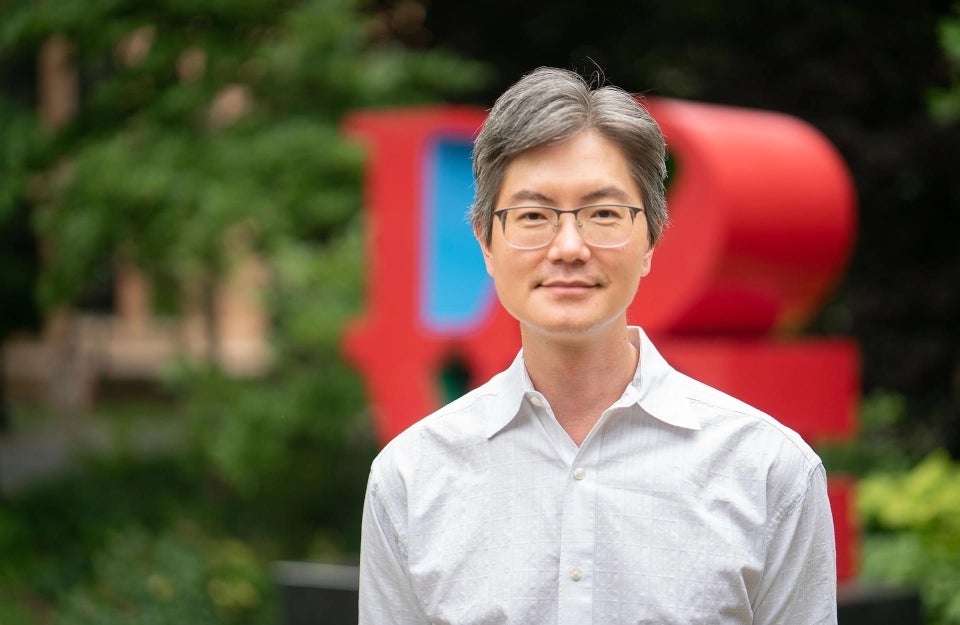
Andy Tan, Ph.D., M.P.H., M.B.A., M.B.B.S.
Associate Professor Andy Tan was no stranger to the Annenberg School for Communication when he joined the faculty in 2020, following six years at the Harvard T.H. Chan School of Public Health at Harvard and the Dana-Farber Cancer Institute. He earned his Ph.D. at Annenberg in 2013, and stayed on as a postdoctoral fellow the next year with Annenberg’s NIH-funded Center of Excellence in Cancer Communication Research. He has also authored publications with more than a dozen of his fellow alumni, as well as numerous members of the Annenberg faculty.
After two years at Annenberg, during which time he founded the Health Communication and Equity Lab, Tan recently added a new feather in his cap: he received tenure. As the Fall semester appears on the horizon, we caught up with Tan to find out about his experience as a faculty member so far, and what is to come in 2022-23.
What have been the highlights of your first two years at Annenberg?
It was definitely challenging to move to Penn in the midst of the pandemic in 2020 and work remotely for all of that year and into the spring of 2021. Annenberg has always been a place that values the many means of communication between members of our community — we are after all the Annenberg School for Communication! So it was particularly meaningful to me to be able to meet with other faculty, staff, students, and visiting scholars and connect in person when vaccines became widely available and we were able to return to campus in the summer of 2021. It meant a lot to me to have in-person interactions with my team, teach in the classroom, meet with colleagues or students, and attend events again.
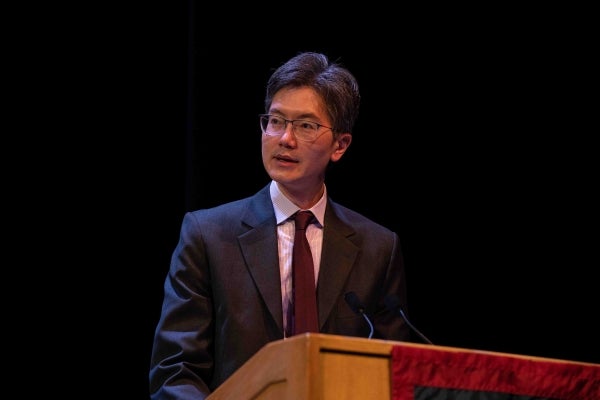
Since we’ve returned, I’ve been able to connect with colleagues across the Penn campus, including at Penn Medicine, Penn Nursing, and Arts and Sciences. I had an enriching experience as part of the Leonard Davis Institute of Health Economics 2022 Amplify@LDI Translation and Dissemination training program to reach a wider audience and increase the impact of research conducted at Penn. Over the course of the academic year, I utilized a variety of research dissemination approaches including publishing op-eds, policy briefs, social media outreach, and using animations for research dissemination.
I am also collaborating on research projects and grants with colleagues at Penn Nursing, Penn Medicine, The Children’s Hospital of Philadelphia, and the Abramson Cancer Center and was able to guest lecture in a class at the Perelman School of Medicine.
It has been a highlight over the past year to be involved in interdisciplinary research at Penn, including lung cancer screening among environmental justice communities, improving lung cancer care quality using telehealth, promoting diversity in pediatric research, and addressing COVID-19 health disparities.
The COVID-19 pandemic has shaped lives globally in so many ways, but it certainly proved the value of health communication work. Are there ways in which the pandemic has shaped your research agenda?
My work is focused on tobacco-related health communication research, but the pandemic has offered new opportunities for my research to contribute to health communication in broad ways.
Since July 2021, I have been part of Philly CEAL, a city-wide, NIH-funded collaborative effort co-led by Penn Nursing and Philly Counts aimed at providing the Philadelphia community with the resources and tools needed to protect our neighborhoods from the spread of COVID-19. I’m really glad to participate in this community-engaged initiative that contributes to improving the health and safety of our community.
What are you doing with Philly CEAL?
I lead the strategic communication outreach, and with a team of talented Penn undergraduate research assistants, we develop and disseminate social media messages to promote vaccine uptake, testing, and COVID-19 precautions among Philadelphia residents. We attended community health fairs, vaccine clinics, and other events organized by Philadelphia-based partners to listen to families and vaccine ambassadors on their concerns about the pandemic and reasons for receiving the COVID-19 vaccines for themselves and their children. Their insights have been invaluable.
Several of our doctoral students have additional research building on the work we’ve done with Philly CEAL to address COVID-19 disparities. Brittany Zulkiewicz, a second-year Annenberg doctoral student, is leading an evaluation of online engagement with Philly CEAL’s social media outreach efforts. I am serving as faculty advisor for Danielle Clark, a third-year Annenberg doctoral student, who received the Netter Center’s 2022 Penn Graduate Community Engaged Research Mentorship, to conduct key informant interviews with leaders and staff of community-based organizations in Philadelphia aimed at identifying perceived barriers and facilitators of efforts to promote COVID-19 vaccine uptake among parents with young children.
What are some of the big projects you’re working on right now?
My lab has been focusing on two NIH-funded projects to develop and evaluate the effectiveness of LGBTQ-tailored anti-tobacco messages using community engaged research approaches.
Our interdisciplinary team is excited to work on Project SMART, a five-year grant funded by the National Institute on Drug Abuse (NIDA) to design a tailored social media intervention to prevent vaping initiation among LGBTQ youth between the ages of 13 and 18.
This past year, we conducted formative survey research with 259 young people and conducted interviews and focus groups with 36 of them. Over the summer, two Penn Undergraduate Research Mentoring (PURM) undergraduate interns joined our team to analyze qualitative comments from LGBTQ+ youth on vaping-related beliefs. They then used the insights to develop tailored anti-vaping messages for LGBTQ+ youth. We also partnered with Netter Center’s OurSpace initiative to create original social media messages that will be tested using a discrete choice experiment in the fall of 2022.
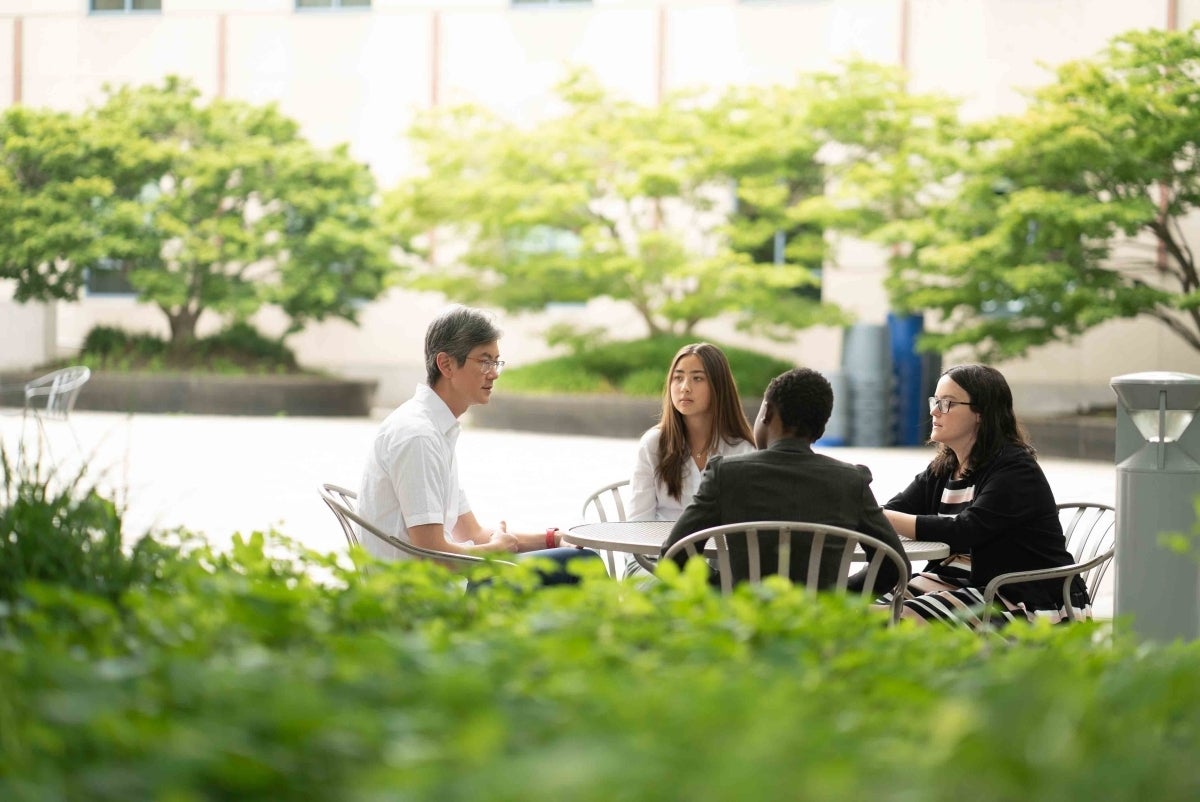
Throughout these activities, we engaged with a group of 5 LGBTQ+ youth advisors from different states to share insights from the formative research and obtain feedback on the message designs. We received a supplemental award to conduct interviews with LGBTQ+ youth serving organization leaders and representatives from local, state, and federal health agencies to get their input on ways to implement youth-targeted anti-vaping health campaigns. This information will inform the social media intervention that we will develop for the randomized controlled trial in the project’s next phase.
At the same time, we have been working on Project Resist, a five-year study funded by the National Cancer Institute (NCI) to determine the effects of using a culturally-tailored messages that help inoculate sexual minority young adult women against the temptations to begin smoking or vaping.
Through community organizations, we’ve been speaking to young women, learning their perspectives that will help our eventual health messaging be more effective.
We completed a national randomized controlled experiment this spring to compare the effects of tailored anti-smoking messages among 2214 sexual minority young adult women and are currently analyzing this data to inform the next phase of the study which will test the impact of using an inoculation approach on smoking and quitting intentions. We also received a supplemental award to expand our message testing approach to sexual minority young adult men and transgender and gender expansive young adults. The goal of gathering this information is to create successful interventions that reduce smoking rates among a broad group of LGBTQ+ young adults.
In what direction(s) do you see your lab’s work going?
Health misinformation is an important area of concern that I see my lab’s work addressing in our ongoing and new work.
In a Cancer Research UK-funded randomized trial among among 2000 adult smokers in the US and UK, we found that exposure to social media misinformation related to e-cigarettes influenced smokers’ knowledge and perceptions about e-cigarette harms compared with cigarette smoking, intentions to use e-cigarettes, emotional response, likelihood of engaging (such as liking, sharing, and replying) This is informing new work focusing on understanding and correcting misperceptions related to FDA-approved modified risk tobacco products such as low nicotine cigarettes and snus. When groups of people misunderstand the harms of tobacco products relative to cigarette smoking, that may exacerbate existing tobacco-related health disparities.
Another line of health misinformation research will focus on watching out for COVID-19 related health misinformation in the Philadelphia community and countering it by rapidly disseminating accurate health messages through local trusted sources.
Our lab’s main focus is to utilize communication science to describe, analyze the impacts of, and design interventions to address communication inequalities. Over the next few years, we will continue to grow our capacity to conduct community-engaged research and collaborate within interdisciplinary teams to address these objectives.

